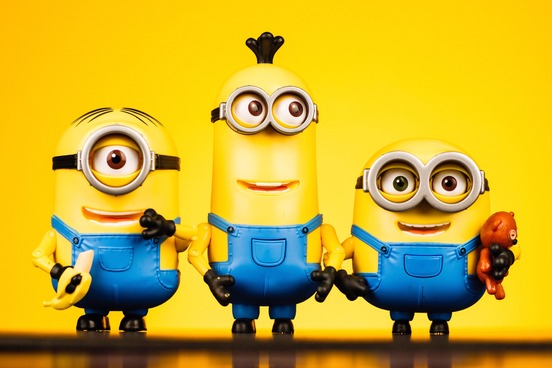
Revenant
The new film starring Leonardo DiCaprio sent people to the dictionary to look up the title: revenant. The word was the most searched term on Merriam-Webster.com for weeks following the film's release in mid-December of 2015, and spiked again after the 2016 Golden Globe Awards, where the film won three awards including Best Motion Picture. It is our top lookup of 2016 so far.
Revenant means "one that returns after death or a long absence," and comes from the French word that means "to return." It was first used to mean "ghost," "specter," or "wraith," and then developed the meaning "one who returns to a former place after prolonged absence"; both meanings seem to fit the new film, since DiCaprio's character is left for dead (not a spoiler—it's in the trailer) and returns to find his former companions.

Haberdashery
Lookups for haberdasher and haberdashery surged after the release of Quentin Tarantino’s The Hateful Eight. Much of the film takes place in a cabin called Minnie’s Haberdashery.
Both words are fairly old specimens: haberdasher means "a person who owns or works in a shop that sells men's clothes" and has been in use in English since the 14th century. Haberdashery refers to the goods sold by a haberdasher or the haberdasher's shop, and can be found at least as far back as the middle of the 16th century. Haberdasher is thought to have come from the Anglo-French word hapertas (a kind of cloth).
It has been noted that there is a definite lack of haberdashing in The Hateful Eight's haberdashery, with nary a garment for sale to be seen. Perhaps Tarantino was referencing the little-known 19th century sense of the word recorded by slang lexicographers Farmer and Henley, who defined the word haberdasher as "(humorously) a publican."

Insidious
Searches for the definition of 'Insidious' spiked again following the release of Insidious: Chapter 3. People tend to search for this word whenever a new film in the horror franchise is released.
Insidious means "causing harm in a way that is gradual or not easily noticed" or "harmful but enticing"—promising definitions for fans of horror films. It comes from the Latin word that means "ambush."
The old was new again in the latest Star Wars movie, which meant more lookups for parsec—a measure of distance that Han Solo famously confused with a measurement of time in Star Wars: A New Hope, and again in Star Wars: The Force Awakens.
A parsec is a unit of measure in interstellar space (equal to 3.26 light years). It's a real word, and it's not the only Star Wars word in the dictionary.

Hoverboard
Okay, this wasn't a 2015 movie release. But "Back to the Future Day"—October 21, 2015, the "futuristic" date Marty McFly travels to in Back to the Future II—revived interest in the Back to the Future trilogy and sent at least a few fans to the dictionary in search of hoverboard, a word we do not currently enter. (We know: this was supposed to be the future.)
In those movies, a hoverboard is a skateboard that appears to float magically just above the ground. Yet the word has recently been widely used to describe a kind of scooter, one which has two wheels attached to a small platform and is operated in a hands-free fashion. That it does not hover seems not to bother people as much as the fact that the devices are, at least in this early state of development, rather prone to catching on fire.
Far from originating with Back to the Future, the word hoverboard goes back to at least the middle decades of the 20th century. The earliest currently known use of the word comes from a 1967 book by M. K. Joseph, The Hole in the Zero: A Story of the Future.

Minion
Minion was looked up for a simple reason: the animated movie Minions. The word means “follower” or “underling,” but its origin is as adorable as the cartoon characters: it comes from mignon, the French word for “dainty” or “cute.” Though filet mignon retains the modern French spelling because it entered English relatively recently, we’ve used the minion spelling for the “follower” sense since the 1500s.

Whitewashing
The confluence of an all-white Oscar slate with the casting of the white actor Joseph Fiennes to play black musician Michael Jackson led to renewed charges of Hollywood whitewashing.
This new sense of whitewashing refers to casting white actors as characters who are non-white or of indeterminate race, as in the casting of Fiennes as Jackson. It can also refer to preferring white actors, directors, cinematographers, and so on, over equally qualified people of color, as in the Oscar nominations.
This use of whitewashing began to take off in the late 1990s, as more people of color called out the television industry and Hollywood for their tendency to default to casting white actors. We have mounting written evidence of both the noun whitewashing and the verb whitewash.






